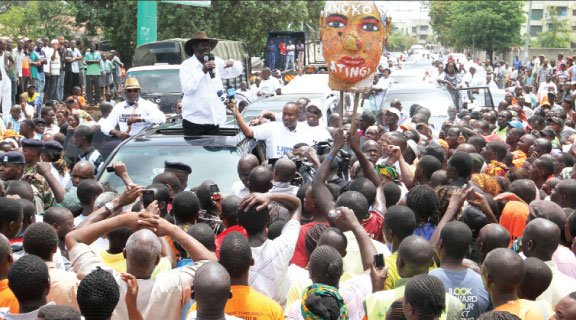×
The Standard e-Paper
Stay Informed, Even Offline
 |
| CORD leader Raila Odinga addresses a crowd in Mombasa in the run-up to the Supreme Court ruling on the disputed March 4, polls. [PHOTOS: FILE] |
By The Counties Team
Has Raila Odinga, a man many consider the fulcrum of Kenya’s politics, and who is likely the most talked about politician after President Uhuru, made up his mind on the 2017 race?